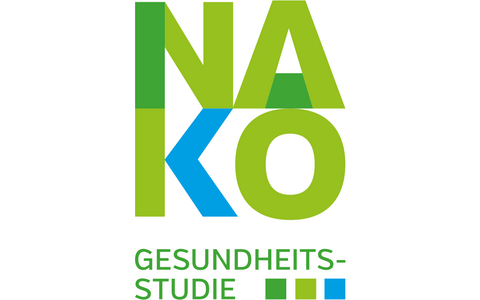
German National Cohort Study
NAKO Health study
The NAKO study (National Cohort Study) will include 200,000 participants, recruited through a network of 18 study centers, organized in 8 clusters throughout Germany. At each center, a random sample of the general population is drawn within strata of age and sex.
All participants are invited to the study centers to take part in physical and medical examinations, collection of biomaterials, personal interviews, and to fill in questionnaires. All participants will be re-invited for a second examination five years after baseline recruitment. Participants will be re-contacted every 2-3 years and asked to fill in short questionnaires about changes in lifestyle and other characteristics and about the occurrence of selected, major diseases. In parallel, a mortality follow-up and systematic record linkage with existing disease registries will be performed periodically. Biomaterials are stored in a centralized biobank and in decentralized storages.
Within this initiative, the Molecular Epidemiology Group coordinates the Cluster Berlin-Brandenburg, which consists of the MDC, the Charité-University Medical Center Berlin, and the German Institute of Human Nutrition Potsdam-Rehbruecke (DIfE). The Cluster comprises three study centers, and is recruiting 30,000 participants into the NAKO study.
Please visit the German website for more detailed information for study participants.
Projects
- Pretests for the National Cohort
-
Feasibility assessment
-
A major foundation for the planning and preparation of the National Cohort was the implementation of pretests to assess the feasibility of methods for recruitment of study participants and for assessment of study data.
In addition, the pretests formed the basis to build up recruitment centers and hire qualified personnel. Within these pretests, we have recruited more than 400 participants from Berlin and Brandenburg. The participants underwent a base set of detailed interviews and physical examination that were standardized across all study centers.
In addition, we have conducted feasibility studies in collaboration with partner institutions, to evaluate methods to assess physical activity, physical fitness, nutrition, and oral health. Further, we have developed methods for shipment and long-term storage of biomaterials. During the pretests, blood samples have been collected from participants of the three study centers of the Cluster Berlin-Brandenburg, and are being stored at the MDC. Furthermore a study protocols for the assessment of body measures using a 3-dimensional body surface scanner has been developed.
- MRI measurements within the National Cohort
-
Magnetic resonance imaging (MRI)
-
Magnetic resonance imaging (MRI) permits comprehensive imaging using highly standardized protocols without ionizing radiation. In prospective settings, it offers the opportunity to study the relevance of preclinical morphological changes for chronic disease risk. In the German National Cohort, whole-body 3T MRI measurements are being taken from 30.000 participants.
At the MDC’s Berlin Ultrahigh Field Facility (B.U.F.F.), the Molecular Epidemiology Group, the Experimental Ultrahigh-Field MR group, and the Cardiac MRI group is conducting MRI measurements of 6,000 study participants from the three Berlin-Brandenburg study centers of the German National Cohort. The measurements will be the cornerstone for future analysis on exposure disease relationships.
References
- Bamberg F, Kauczor HU, Weckbach S, Schlett CL, Forsting M, Ladd SC, Greiser KH, Weber MA, Schulz-Menger J, Niendorf T, Pischon T, Caspers S, Amunts K, Berger K, Bulow R, Hosten N, Hegenscheid K, Kroncke T, Linseisen J, Gunther M, Hirsch JG, Kohn A, Hendel T, Wichmann HE, Schmidt B, Jockel KH, Hoffmann W, Kaaks R, Reiser MF, Volzke H, German National Cohort MRISI. Whole-Body MR Imaging in the German National Cohort: Rationale, Design, and Technical Background. Radiology 2015:142242
References
- German National Cohort Consortium. The German National Cohort: aims, study design and organization. Eur J Epidemiol 2014;29:371-82
- Steinbrecher A, Mall S, Niendorf T, Schulz-Menger J, Pischon T, Willich SN, Keil T, Krist L, Vigl M, Boeing H. Gemeinsam forschen für eine gesündere Zukunft. Berliner Ärzte 2015;52:27-9 (pdf-link)
- Bamberg F, Kauczor HU, Weckbach S, Schlett CL, Forsting M, Ladd SC, Greiser KH, Weber MA, Schulz-Menger J, Niendorf T, Pischon T, Caspers S, Amunts K, Berger K, Bulow R, Hosten N, Hegenscheid K, Kroncke T, Linseisen J, Gunther M, Hirsch JG, Kohn A, Hendel T, Wichmann HE, Schmidt B, Jockel KH, Hoffmann W, Kaaks R, Reiser MF, Volzke H, German National Cohort MRISI. Whole-Body MR Imaging in the German National Cohort: Rationale, Design, and Technical Background. Radiology 2015:142242






